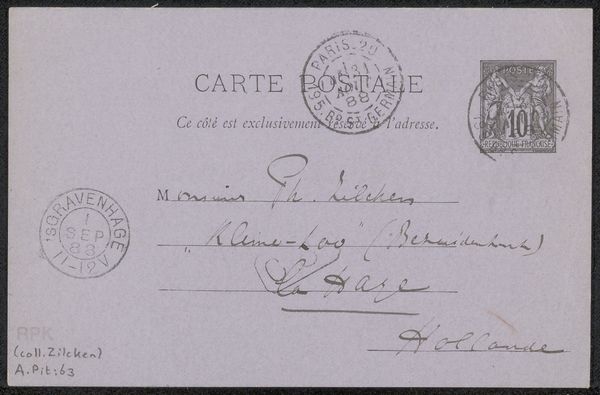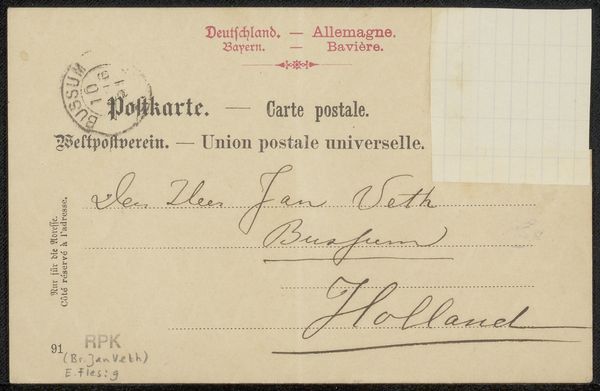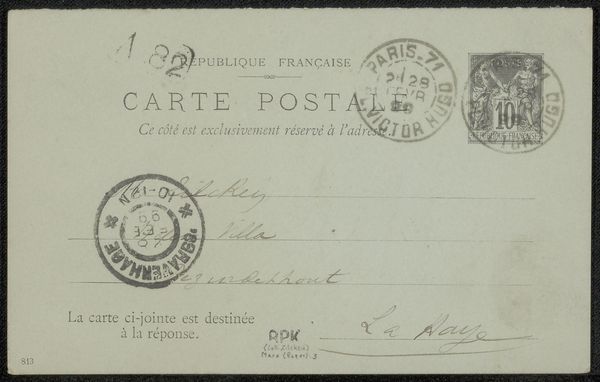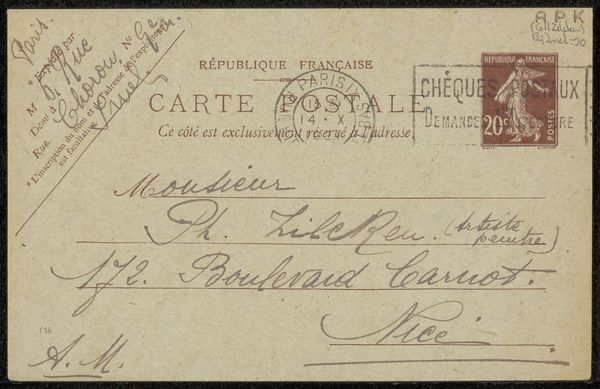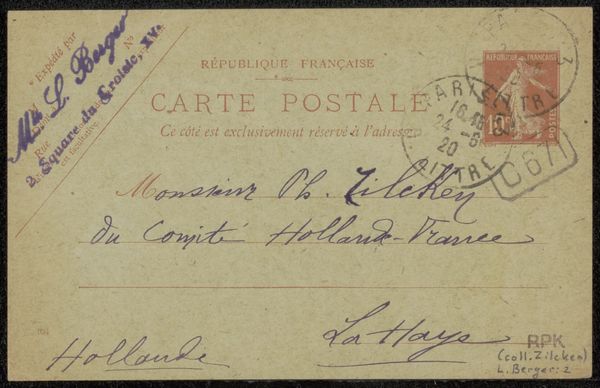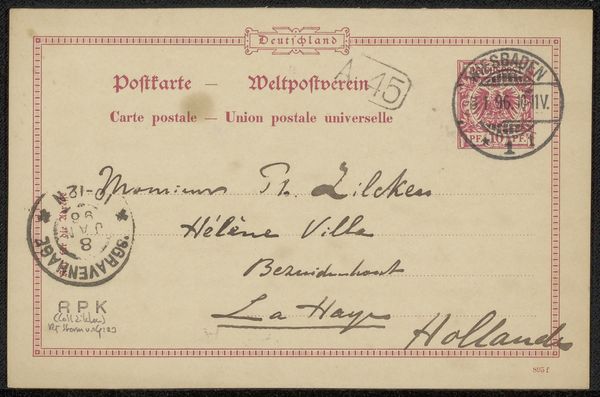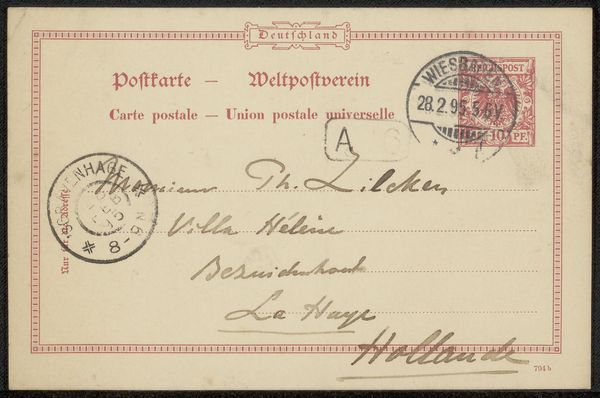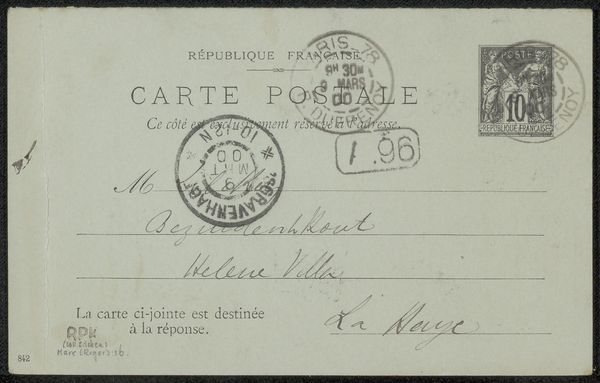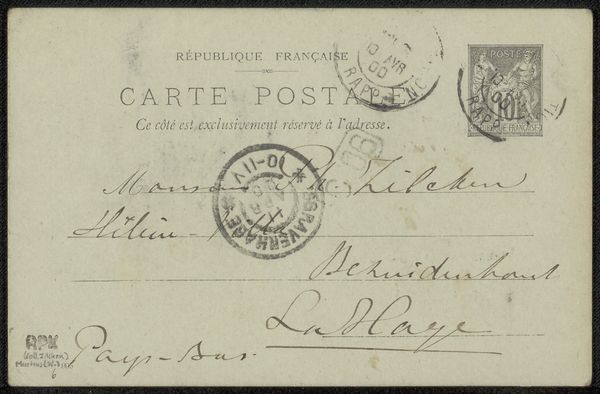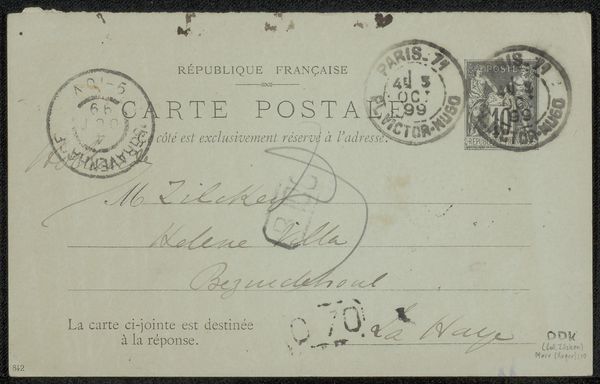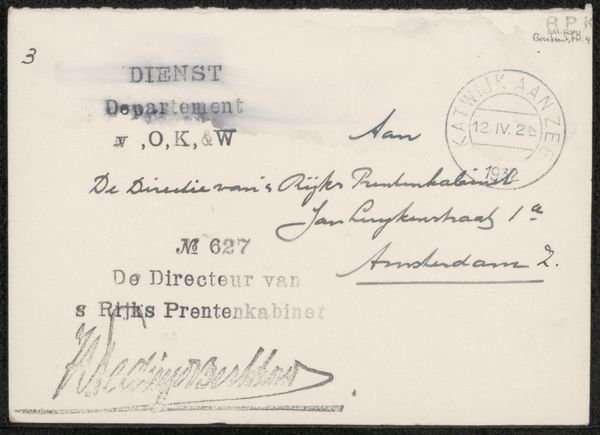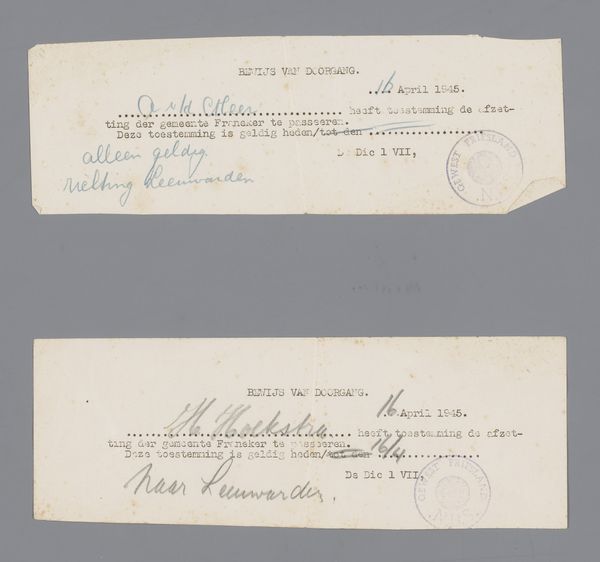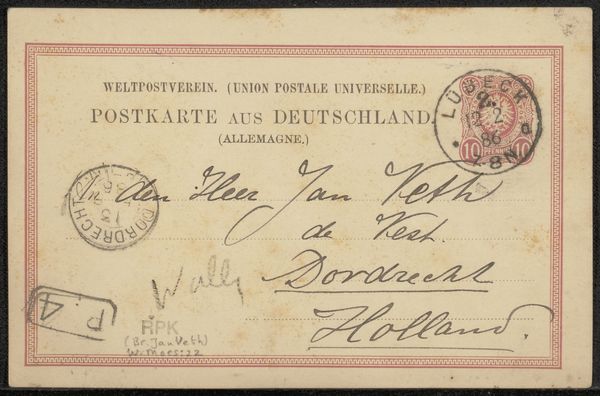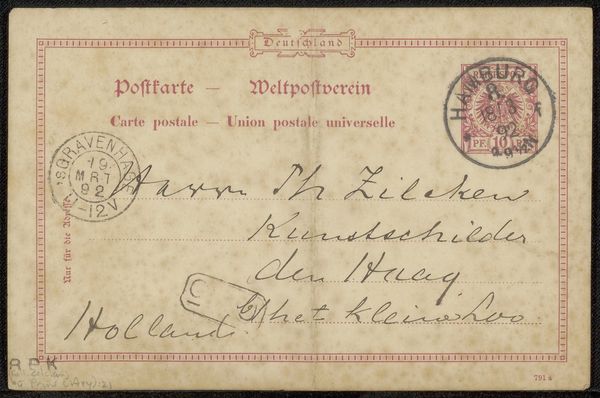
graphic-art, print, photography, poster
#
graphic-art
# print
#
impressionism
#
photography
#
poster
Copyright: Rijks Museum: Open Domain
Curator: This intriguing graphic, titled "Toegangskaart van Jan Hendrik Maschaupt," dates back to 1867. It’s an admission ticket, of sorts, for Jan Hendrik Maschaupt to the Exposition Universelle in Paris. Editor: My first thought? It’s a document of privilege, isn't it? All that looping script and formal language hints at access denied to so many. The card's surface and typography speak volumes of class and power. Curator: Indeed. But let's not overlook the symbolic function of such a document in 1867, which served as a visual representation of progress and global interconnectedness. It is also significant because graphic arts are often excluded from conversation about "high art." The flowing script can suggest a signature. A signature signifies authority, intention, but also a person's authentic existence. Editor: Valid points. Still, it is important to underscore how the ticket itself functioned as a kind of passport. These international expositions—ostensibly about global collaboration—were fundamentally showcases for Western colonial power. They were projecting dominance while feigning some international friendship and alliance. Look how its function denies access to some while granting it to a selected privileged population! Curator: I agree that's crucial historical context. However, the ticket's material presence also conjures ideas around temporality and memory, how ephemeral events leave behind enduring artifacts and photographic trace. I can consider how Maschaupt, whoever he was, might've carefully kept it afterward as a tangible memory. Editor: Absolutely, the element of memory here speaks volumes. Such cards enabled that continued cycle of colonial gaze and performance, long after the actual event. It acts as a potent symbol of its time. Curator: And for us now too. I see in this modest little poster a visual prompt to re-evaluate, in the present day, what historical inclusion and social access can, and perhaps should, really entail. Editor: Precisely. Viewing this card now pushes me to see our institutions and practices through a critically historical lens. It reminds me of what work there is still to do today!
Comments
No comments
Be the first to comment and join the conversation on the ultimate creative platform.
